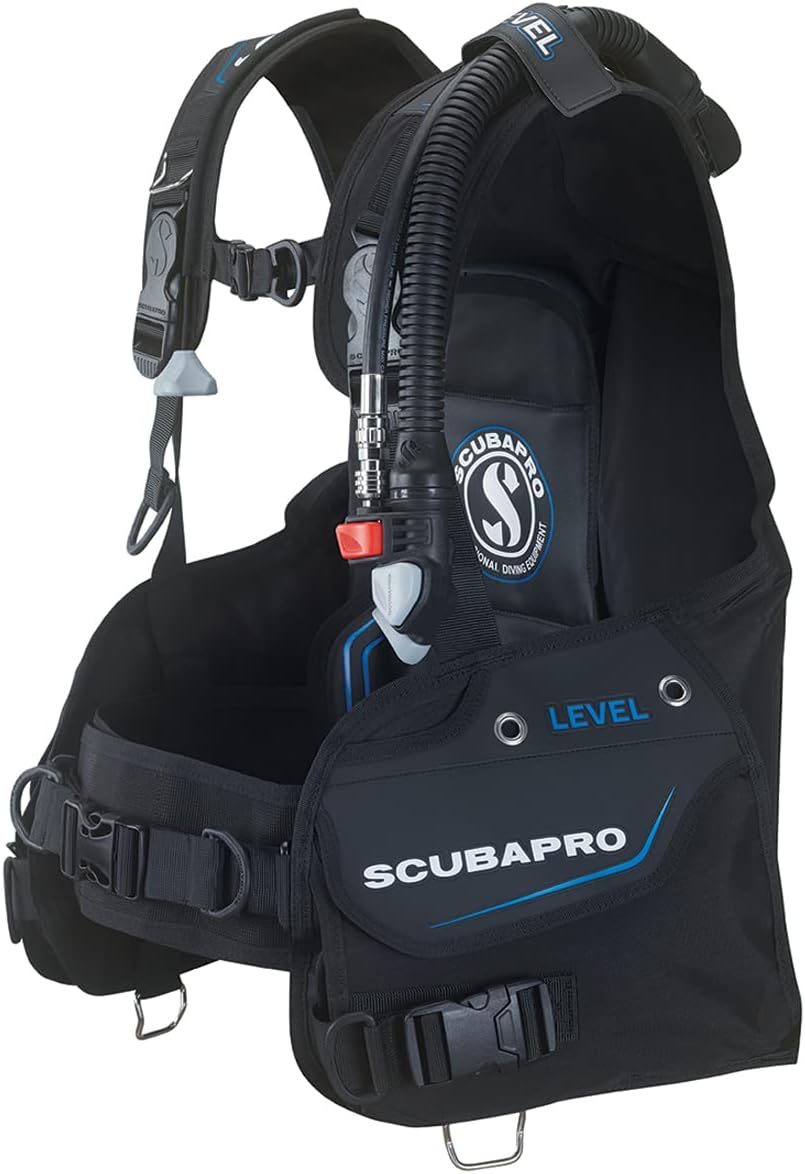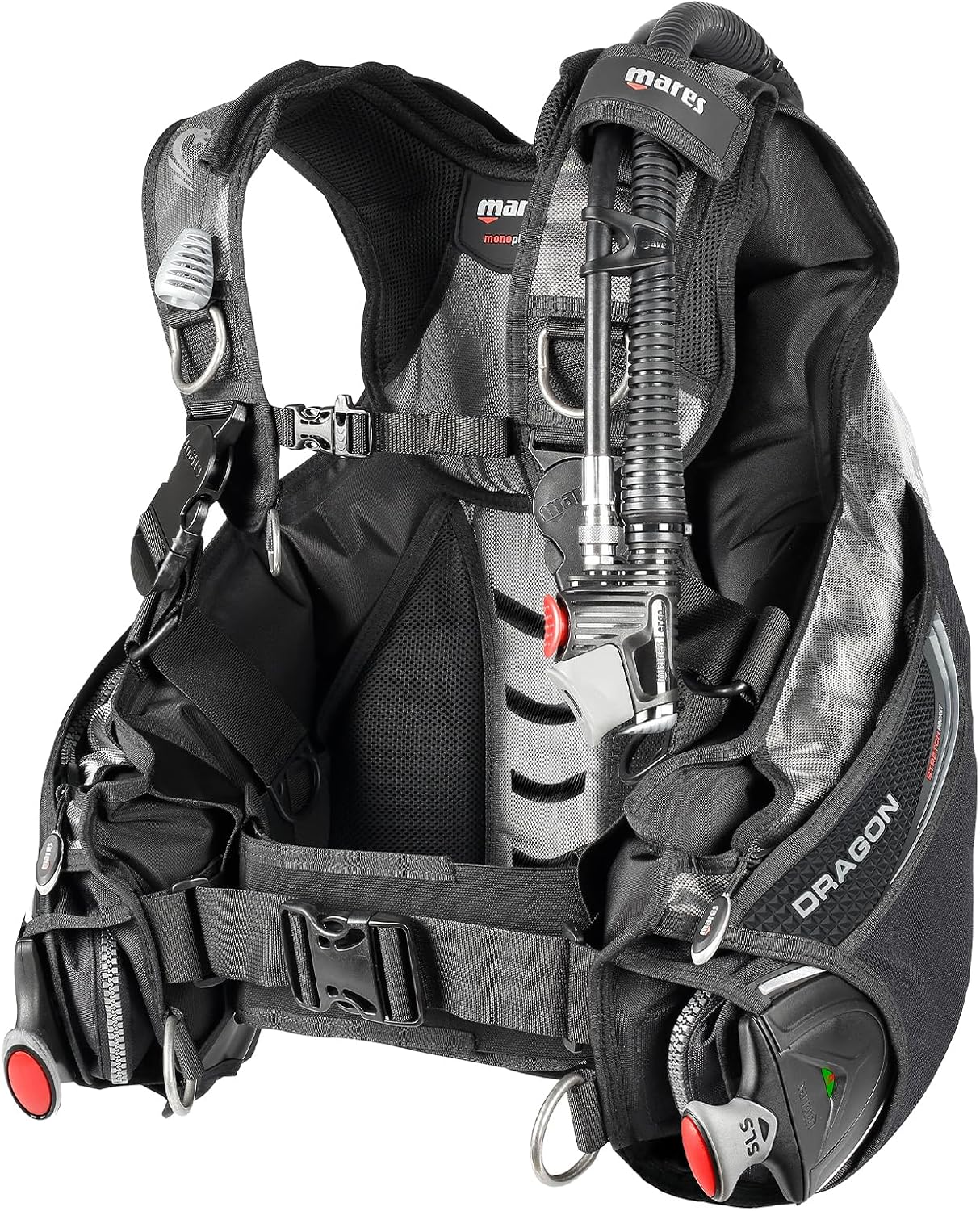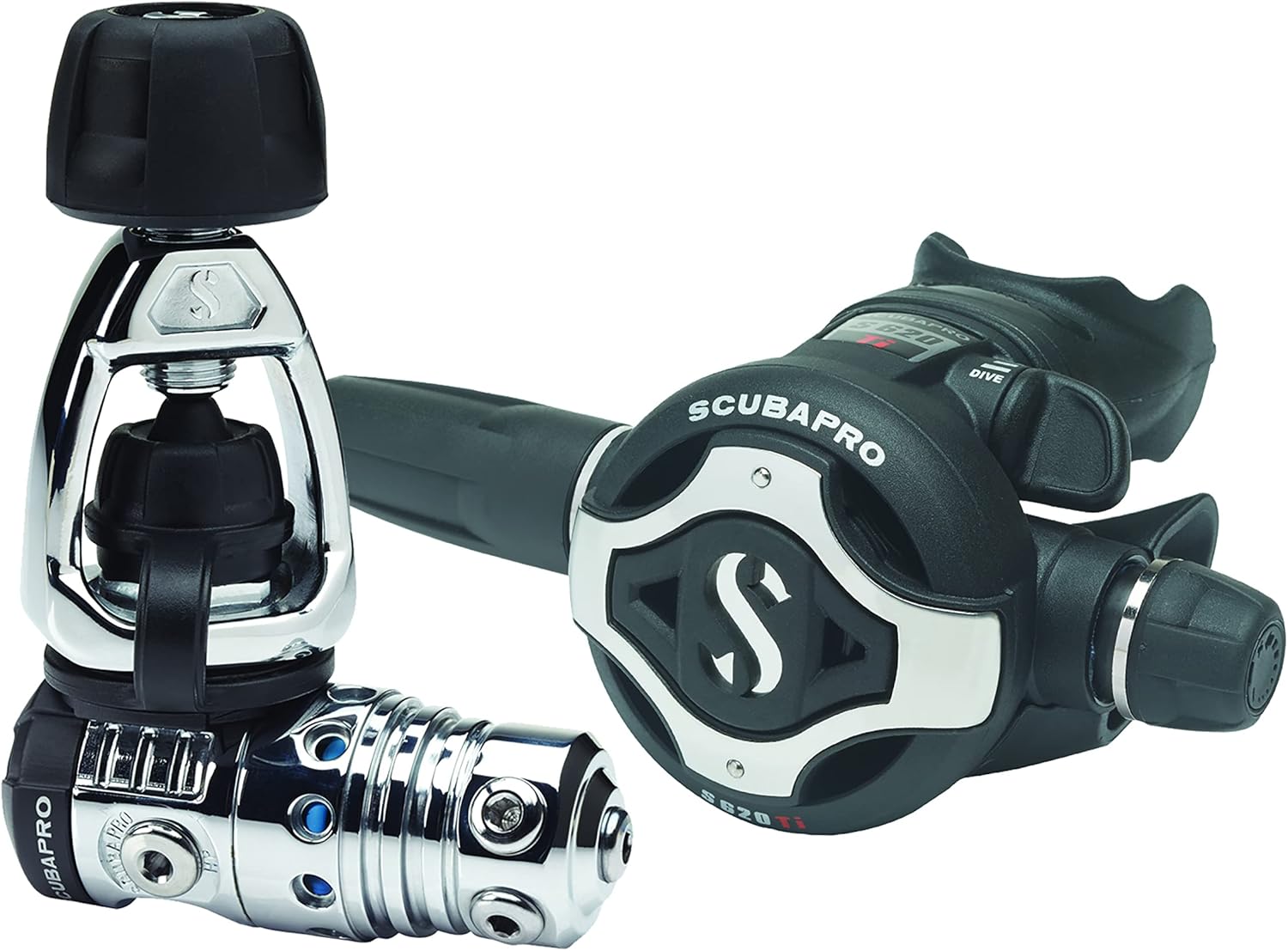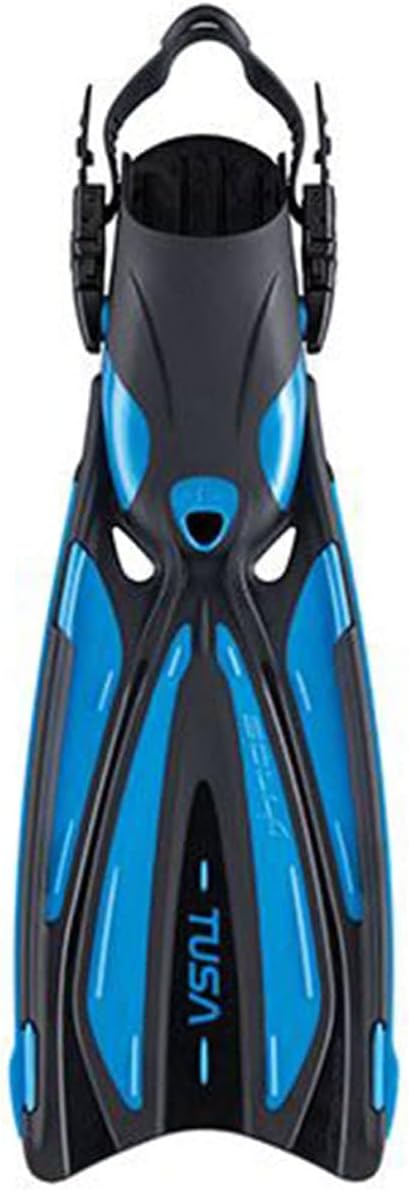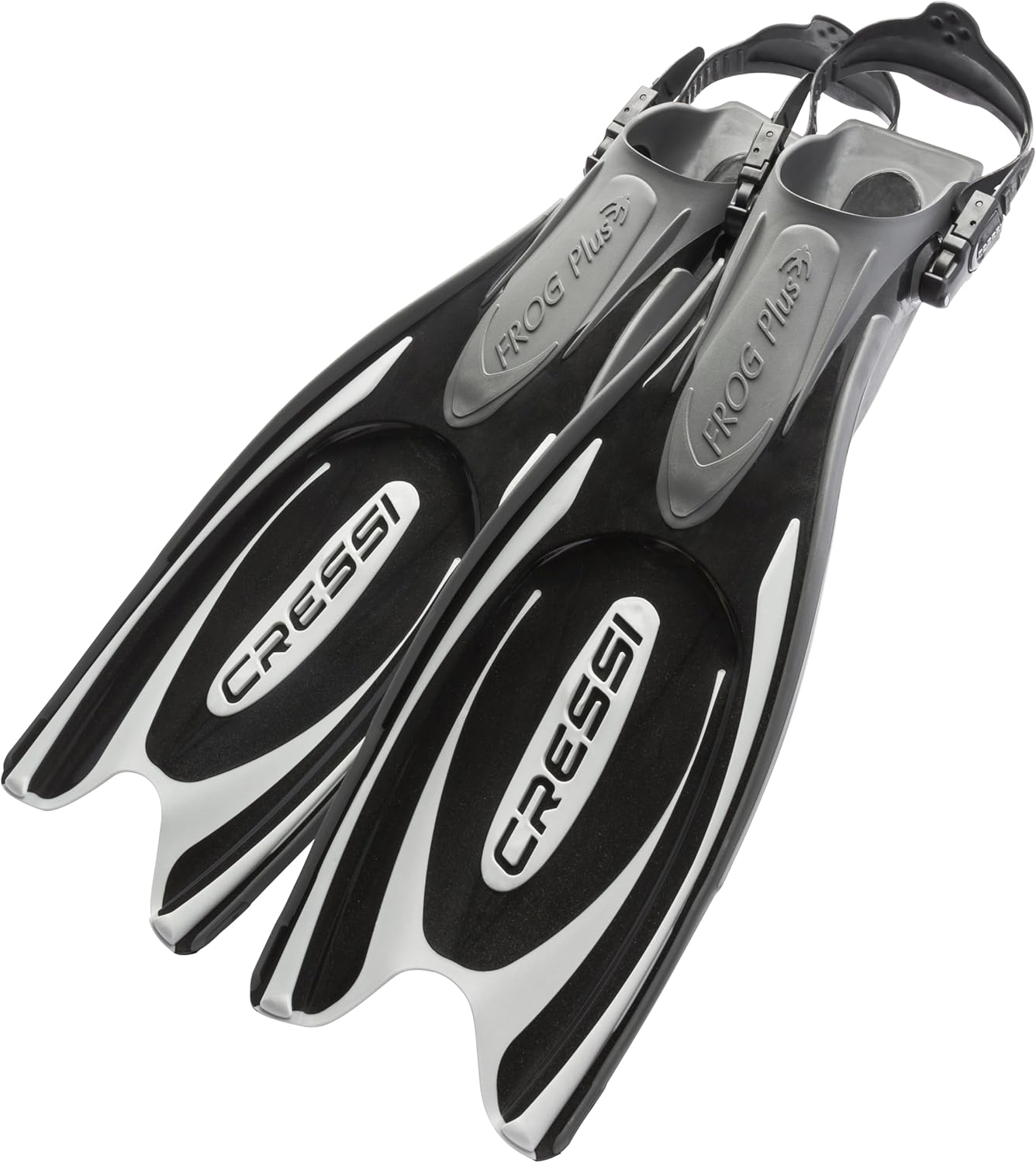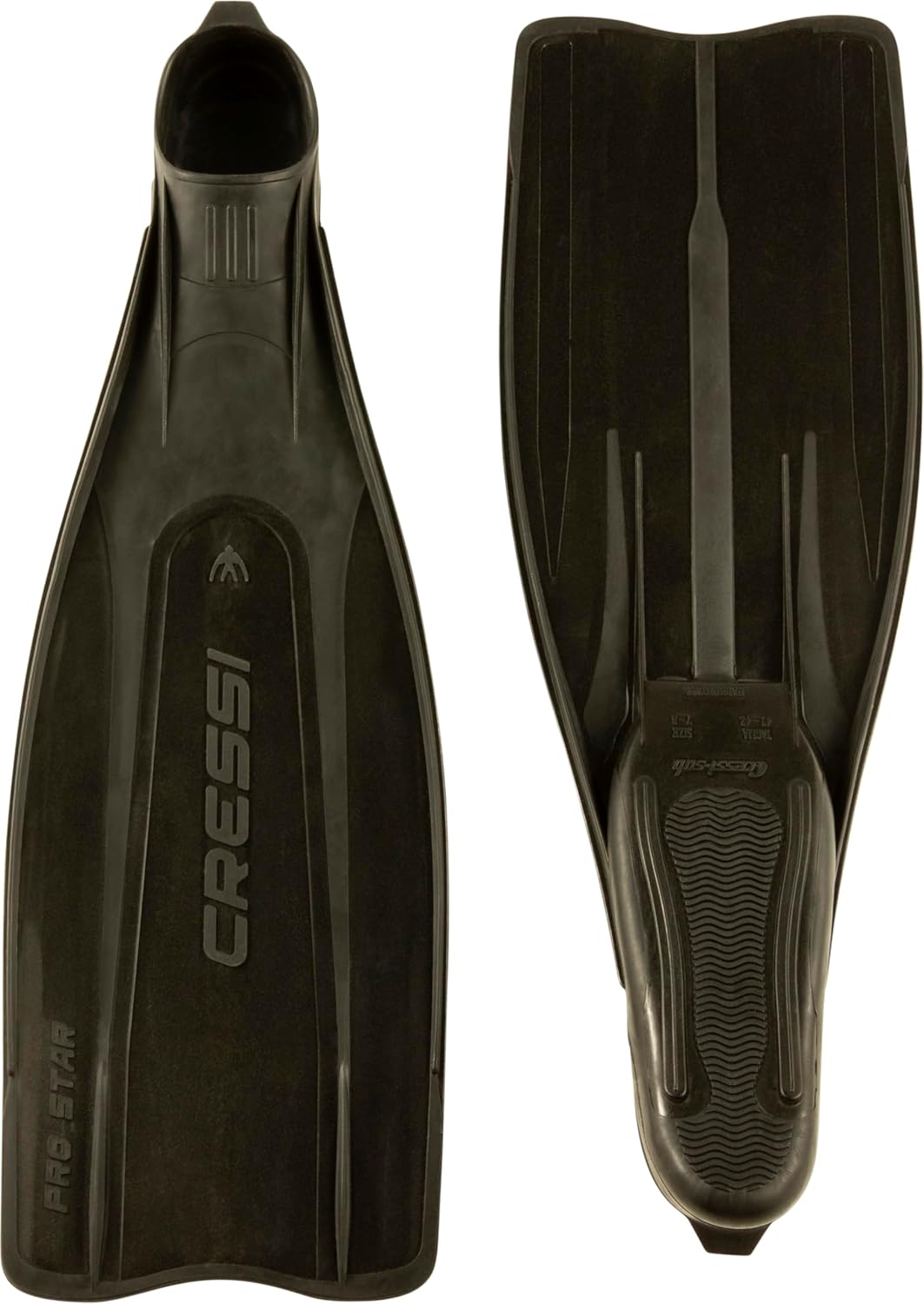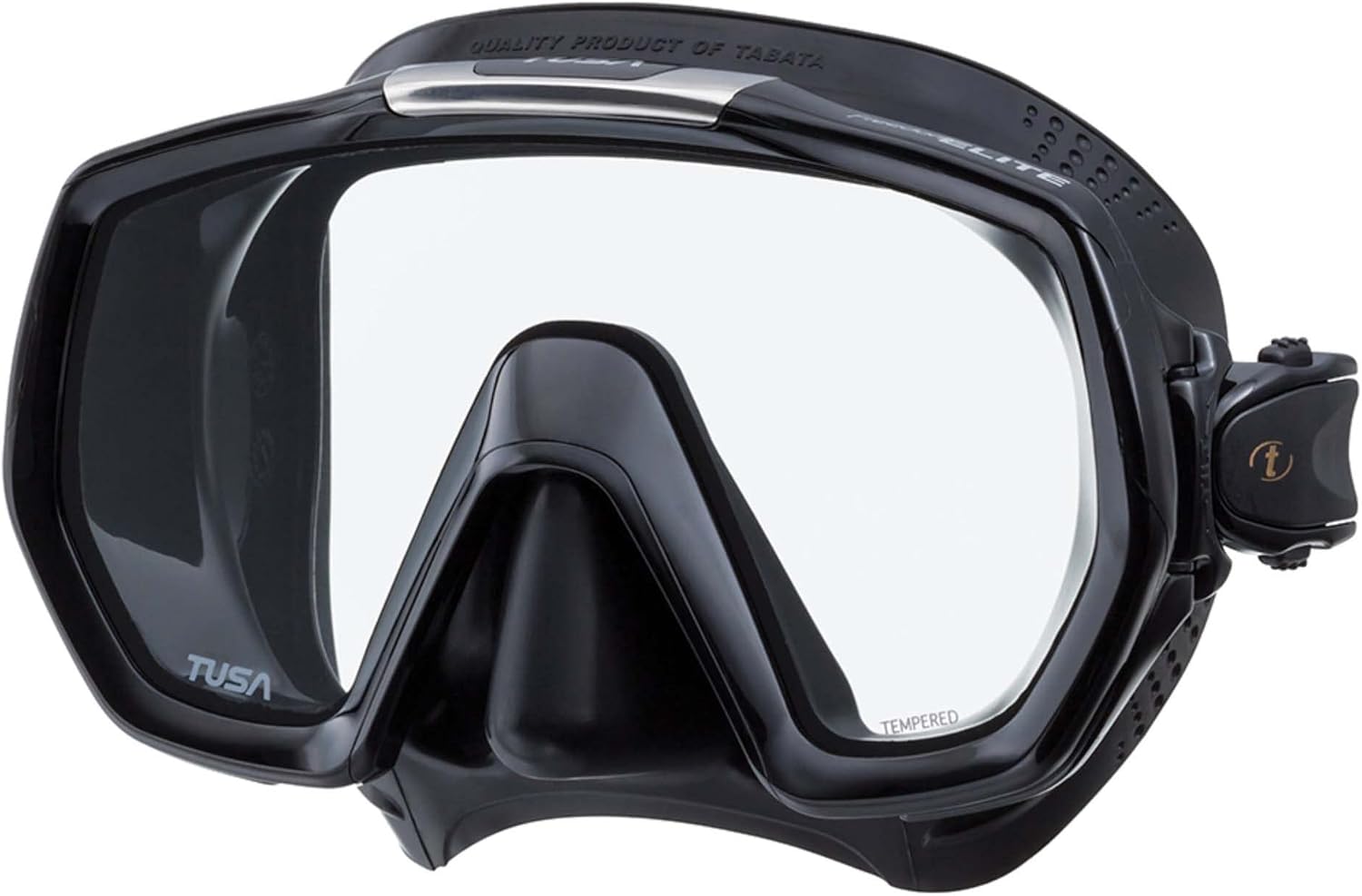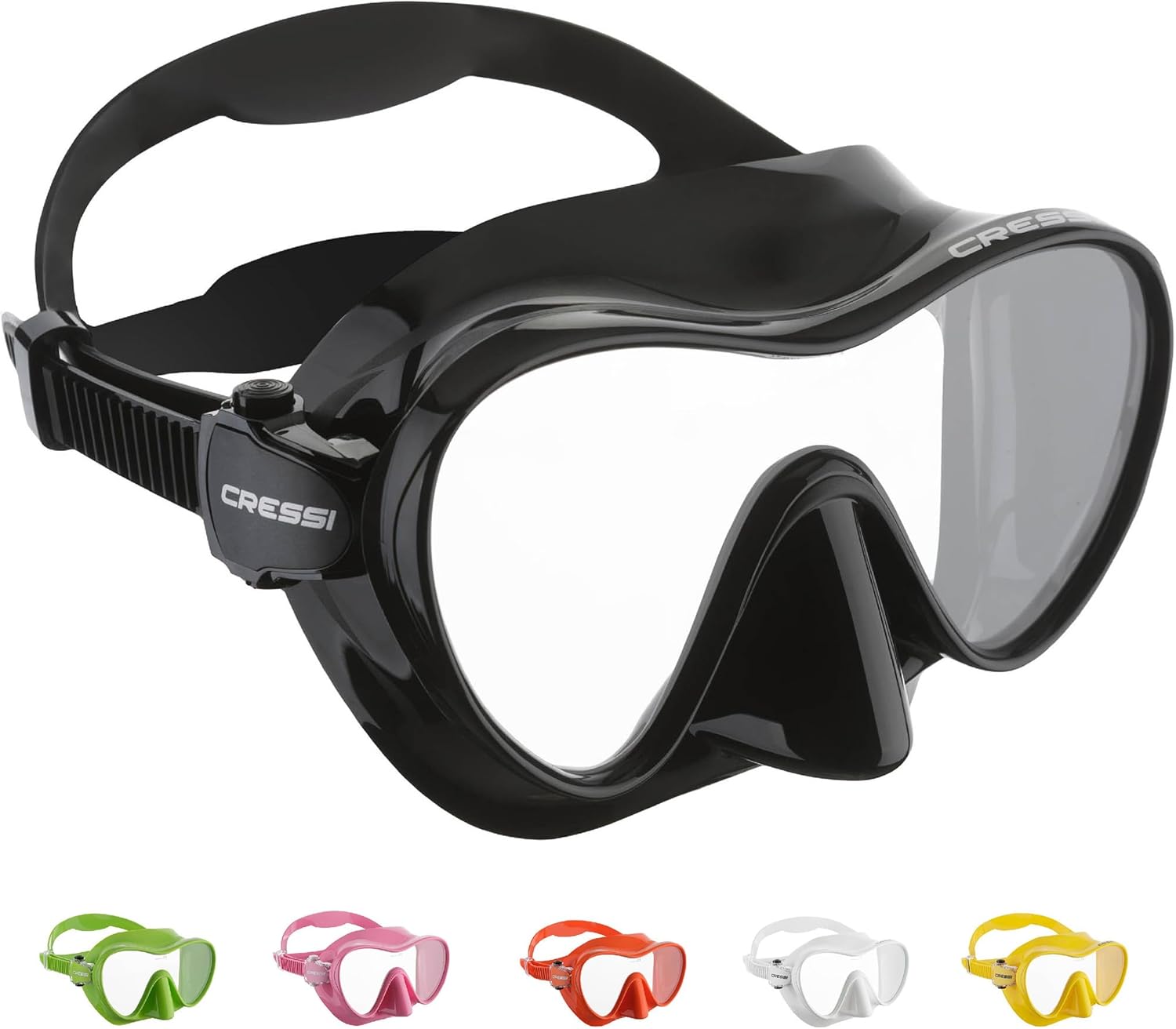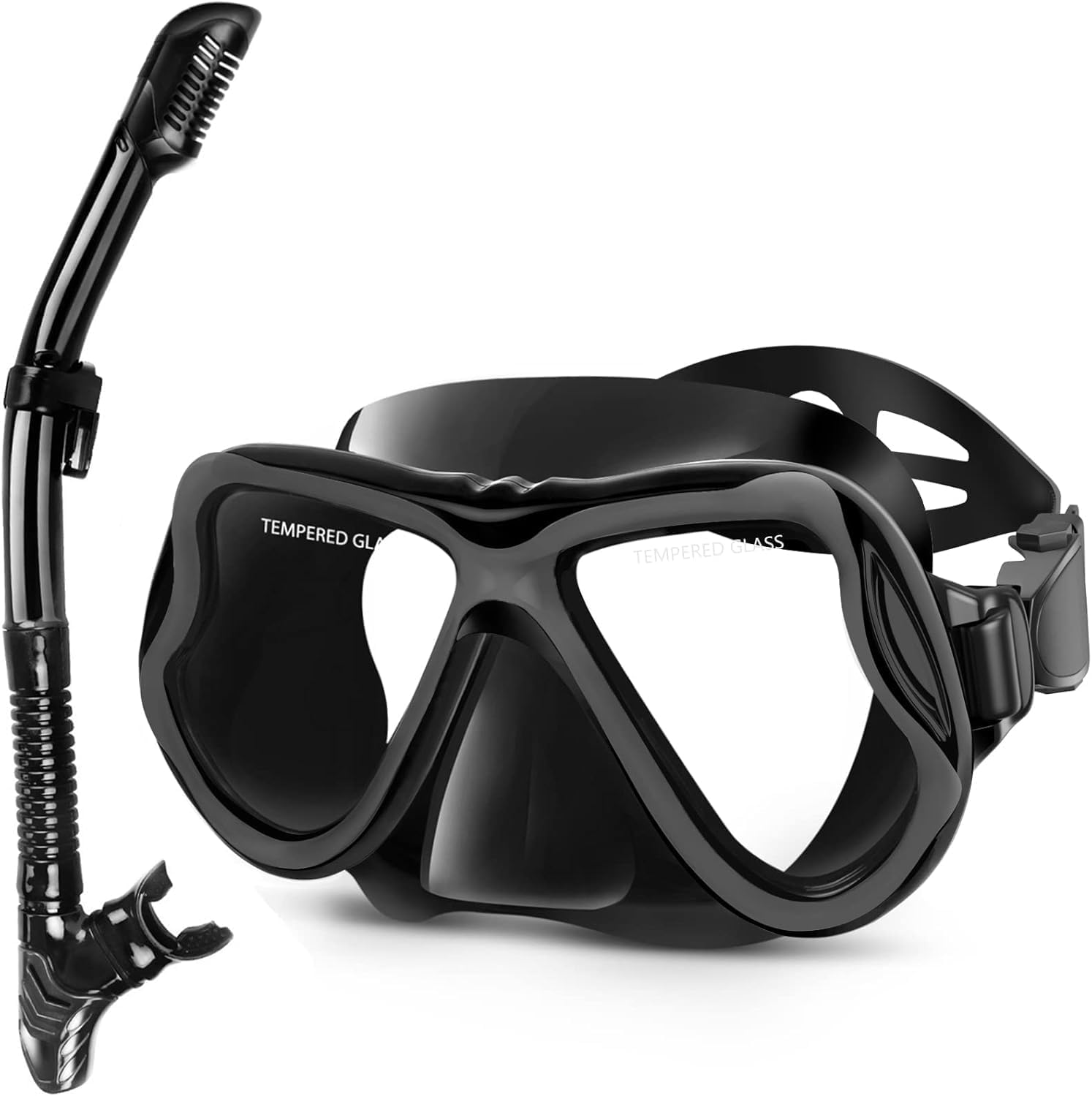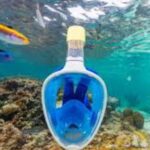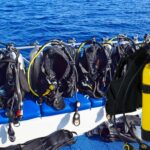Is Scuba Diving Hard – Honest Answer
Is Scuba Diving Hard? Imagine stuffing yourself into a wetsuit that feels like a sausage casing, breathing through a regulator like Darth Vader, and flopping backward off a boat into the deep blue abyss voluntarily.
If that sounds like a panic attack in slow motion, well, you’re not alone. Many first-timers wonder, is scuba diving hard, and more importantly, am I going to embarrass myself or be eaten by a confused barracuda?
Well, breathe easy because we’re about to explain every single thing that makes scuba diving seem hard, and everything that proves it’s not nearly as terrifying as your imagination wants it to be.
Is Scuba Diving Hard?
No, scuba diving is not inherently hard. But it does come with a learning curve. Think of it like learning to ride a bicycle but underwater, with fins, gear, and the added element of breathing through your mouth via a regulator.
It’s a mix of physical coordination, mental calmness, and some basic technical knowledge. For most people, after the first few practice sessions (usually in a pool), it starts to feel surprisingly natural.
The hardest part is often not the skill itself but the mental block people have before even trying it. Most certified divers will tell you: once you get over the initial nervousness, scuba becomes one of the most peaceful, meditative experiences you can have.
Is Scuba Diving Hard for Beginners?
The idea of being 40 feet underwater while relying on a tank to breathe can sound like something reserved for astronauts. But in reality, scuba diving is intentionally designed for beginners.
Scuba instructors are trained to work with total newcomers, even those who have never snorkeled before. Dive schools ease you in slowly:
- First, you learn the theory on land.
- Then, you practice in a shallow pool.
- Finally, you do guided open water dives under close supervision.
The beginner phase is broken into digestible lessons:
- Breathing underwater with a regulator
- Learning to clear your mask if water leaks in
- Managing buoyancy using your BCD (buoyancy control device)
You’re never just tossed into the ocean. The gradual exposure makes it easy to gain confidence.
Fact:
According to PADI (Professional Association of Diving Instructors), over 70% of people who try scuba diving go on to get certified, even if they started out nervous.
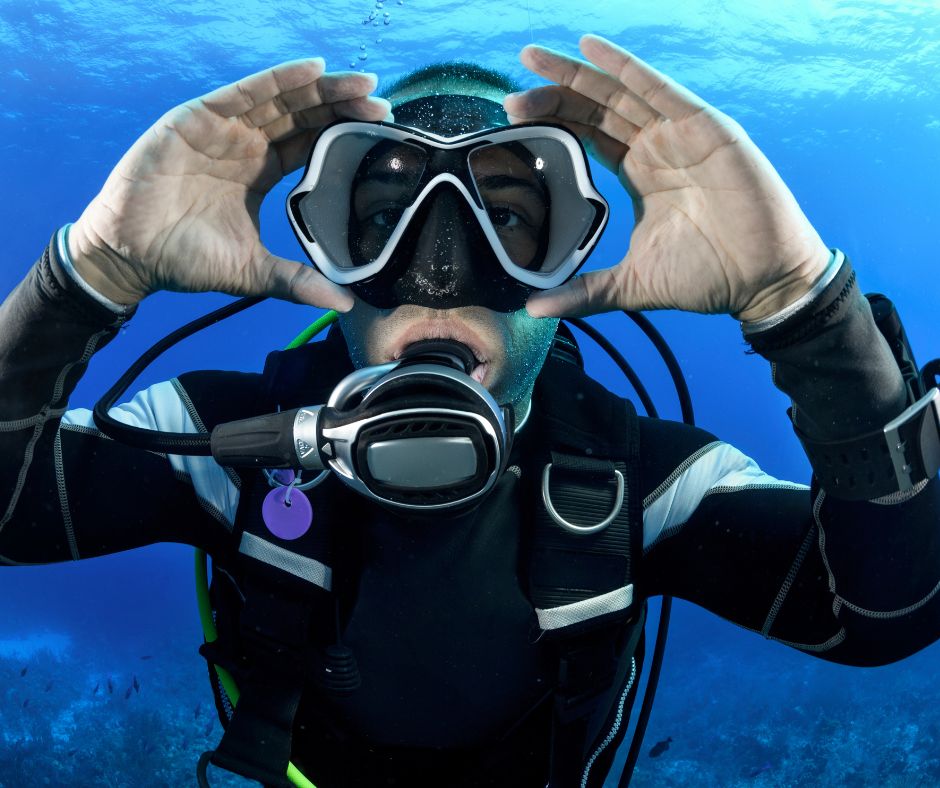
Is Scuba Diving Hard in the Ocean?
It can be a bit more challenging than in a pool, but it’s totally manageable with proper training.
Most training starts in a pool — controlled, calm, no currents, no waves. The ocean, on the other hand, can throw a few extra variables at you:
- Waves and surface chop
- Currents or surge
- Varying visibility
- Marine life (including intimidating but harmless creatures)
- Entry and exit from a boat or beach
But here’s the thing: you’re not sent into the ocean until you’re ready.
Dive instructors make sure your open water dives happen in beginner-friendly locations, usually calm bays, shallow reefs, or lagoons. You’re also never diving alone. A dive buddy and an instructor are always with you.
Ocean diving feels different, yes but it’s also why people fall in love with the sport. The reward (corals, fish, the deep-blue serenity) far outweighs the added difficulty.
Is Diving Harder Than Swimming?
Surprisingly, no. It’s actually easier in many ways.
Here’s why:
- In swimming, you’re propelling yourself with strength and stamina.
- In diving, you’re floating effortlessly thanks to your gear.
The biggest physical difference:
- Swimming uses rapid movements and breath control above water.
- Diving uses slow, energy-saving movements and breathing through a regulator. It’s like being in space – controlled, calm, and low-impact.
If you’re worried about fitness, diving is ideal for people who aren’t athletic. You don’t need to swim laps; just to stay afloat and feel confident in the water.
Tip: You do need to pass a simple swim test for certification: swim 200 meters (any stroke, any pace) and tread water for 10 minutes. That’s it.
|
|
|
|
Is Scuba Diving Expensive?
It’s an investment but it doesn’t have to be bank-breaking.
Here’s a cost breakdown to answer this fully:
Certification (One-Time Fee):
- PADI Open Water Course: $350–$800 (includes instructor, pool sessions, ocean dives, materials)
Gear Costs:
|
|
|
|
- Renting per dive: $40–$80
- Buying your own gear (mask to fins to tanks): $1,200–$2,500+
Diving Trips (Optional Luxuries):
- Local dive trips: $50–$150
- Exotic destinations (e.g., Maldives, Red Sea, Belize): $1,000+ trips, depending on how fancy you go
So, is scuba diving expensive? It can be but think of it like skiing or photography. Upfront costs can be high, but once you’re equipped, it’s just adventure after adventure.
Is Scuba Diving Scary?
Yes, for about the first 3 minutes. Then it usually becomes magical.
People are scared of scuba diving because:
- It’s unfamiliar (you’re underwater!)
- Breathing through a regulator feels weird at first
- They fear drowning, sharks, or deep water
- They feel they’ll panic or lose control
But here’s what happens:
- You practice everything in shallow water first. No surprises.
- You learn how to breathe calmly, clear your mask, and ascend slowly.
- You never dive alone; your instructor and buddy are right beside you.
- Your training drills give you muscle memory to handle most issues.
Once you get through that initial fear, you’re rewarded with one of the most peaceful, surreal experiences of your life – a silent, weightless world filled with life and color.
And the sharks? Most divers are thrilled to see one from a distance. Attacks on scuba divers are exceedingly rare and usually involve spearfishing or provocation.
Is Scuba Diving Physically Demanding?
If you can walk briskly for 10 minutes without gasping for breath, you’re probably fit enough to scuba dive. Scuba is less about brute strength and more about calm, deliberate movement.
Who can dive?
- Older adults? Yes.
- People who aren’t athletic? Absolutely.
- Folks with mobility concerns? Many adaptive dive programs exist globally.
Underwater, the gear makes you neutrally buoyant, meaning you’re basically floating. The effort is minimal if you relax.
That said, people with certain medical conditions like uncontrolled asthma or severe heart problems should consult a dive doctor. But many conditions can still be accommodated safely with medical clearance.
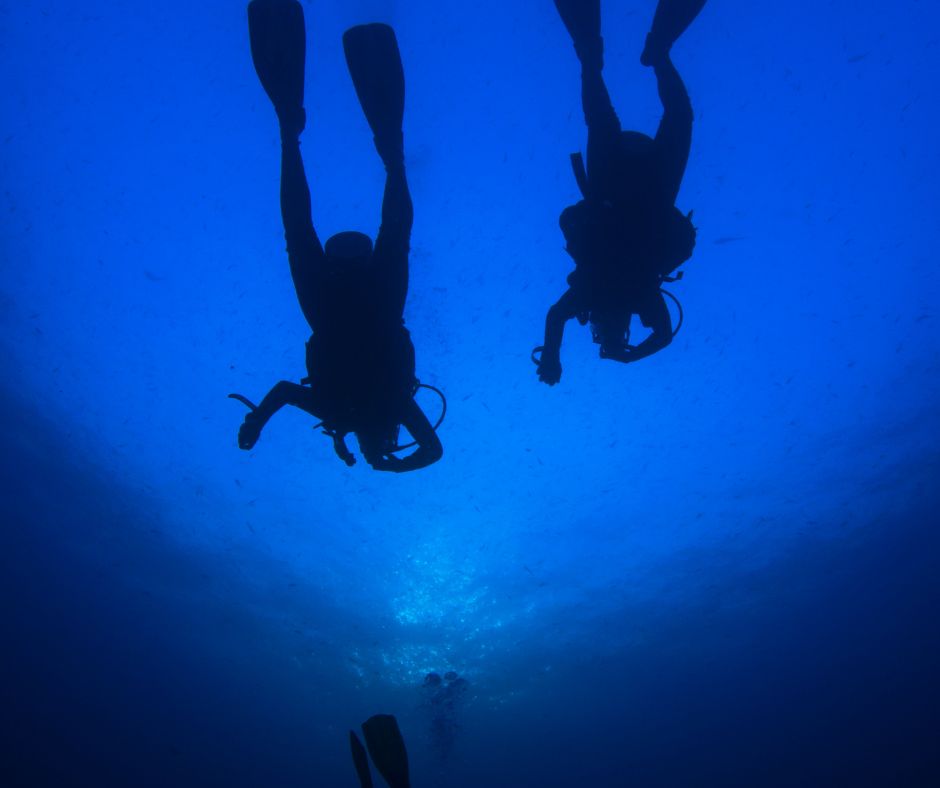
Is It Mentally Challenging to Scuba Dive?
This is the real challenge for many: staying calm when you’re 10 meters deep.
Your brain might scream, “You’re not supposed to breathe underwater!” But once you take a few breaths through your regulator and realize it works reliably, that fear usually fades.
Anxiety is common in the first few minutes of a dive. But instructors teach you how to manage stress underwater, from equalizing pressure to ascending safely if needed.
Pro Tip:
Mindfulness and slow breathing are your best friends underwater. The more relaxed you are, the longer your air lasts and the more enjoyable the dive becomes.
What’s It Like to Learn Scuba Diving?
The learning process is structured and beginner-friendly. A typical Open Water Diver certification (the global standard) involves:
- Knowledge development – Online or classroom sessions (topics like air pressure, safety, and dive planning)
- Confined water training – Pool sessions to learn and master skills
- Open water dives – Four or more dives in the ocean or a lake
Instructors guide you every step of the way, repeating skills until you’re confident.
Is scuba diving hard to learn? Not if you’re patient and open-minded. Think of it like learning to drive – you’re cautious at first, but it soon becomes second nature.
Scuba Diving Gear: Is It Complicated?
Yes, scuba gear looks like something out of a sci-fi movie. But it’s designed for simplicity.
|
|
|
|
You’ll wear:
- A wetsuit
- Mask and snorkel
- Fins
- BCD (helps you float or sink)
- Regulator (for breathing)
- Tank (filled with compressed air)
Instructors walk you through each item step-by-step. By your third or fourth dive, setting up your gear becomes second nature.
|
|
|
|
Looking for the best scuba gear set? Many beginner-friendly kits include everything you need for a safe, comfortable start.
What If You’re Scared of the Ocean or Marine Life?
You’re not alone. Many people worry about:
- Sharks
- Jellyfish
- Deep water
- Poor visibility
But here’s the truth: marine life is not interested in you. You’re a bubbling, fin-wearing alien to them.
And sharks? You’re more likely to get injured by a vending machine than a shark, statistically speaking.
If visibility or depth freaks you out, instructors can guide you through shallow dives in clear, calm water. You’re always in control. If you need to ascend, you can.
READ ALSO: Scuba diving vs snorkeling
Can You Dive with Health Conditions?
Health concerns are a legitimate barrier for some, but not all.
Conditions that require special medical clearance:
- Asthma
- Heart disease
- Epilepsy
- Diabetes
Still, many divers with these conditions are approved to dive after evaluation. The key is honesty in your medical form.
Wondering how much scuba diving certification costs if you need special accommodations? Most dive schools will work with you individually.
Do You Need to Be a Strong Swimmer?
Not at all. You don’t even need to do a proper freestyle stroke.
Requirements for most certification courses:
- Swim 200 meters (no time limit)
- Tread water or float for 10 minutes
You won’t be racing fish. Just gliding and hovering.
If you’re nervous, instructors can help you build water confidence gradually.
How Long Until You Feel Confident?
Most divers say they feel “natural” by their 4th to 6th dive. Your body adapts quickly to underwater movement, and once you trust your gear, your brain relaxes too.
You’ll start thinking about fish instead of fin position.
The more you dive, the smoother it feels – like any other skill.
Will I Look Silly as a Beginner?
Probably a little but so does everyone else. That’s the charm.
Mask hair, foggy goggles, and clumsy flipper walks are all part of the beginner badge. The scuba community is incredibly supportive and wants new divers to succeed.
There’s no judgment, only encouragement.
What Are the Hardest Parts and How to Master Them?
1. Equalizing Pressure
Pinching your nose and blowing gently adjusts for pressure as you descend. Do it early and often.
2. Buoyancy Control
Mastering how to hover takes a few dives, but you’ll get there. Use your breath to fine-tune your position.
3. Clearing Your Mask
Sometimes water sneaks into your mask. Learning how to clear it without panicking is a game-changer.
All these skills are practiced repeatedly in training. By the time you hit open water, they’re second nature.
Is Scuba Diving Dangerous?
Scuba has risks but they’re extremely low with proper training.
Every diver learns:
- How to ascend slowly to avoid decompression sickness
- How to monitor air supply
- How to communicate underwater
Wondering if scuba diving is dangerous? Only if you ignore the rules. With trained instructors, scuba is statistically safer than driving a car.
Scuba Diving vs. Snorkeling: Is It Much Harder?
Yes and no.
Scuba requires training and gear. Snorkeling doesn’t. But scuba gives you:
- Longer time underwater
- Up-close interaction with marine life
- Freedom to explore reefs, wrecks, and caves
Many snorkelers who try a Discovery Dive fall in love instantly and go on to get certified.
How to Get Scuba Diving Certification
You know, before you even start your scuba diving journey, you need to get certified, or else it is not possible. The most recognized agencies are PADI and NAUI. Certification usually takes:
- 3–4 days of training
- Online coursework + pool training + open water dives
Search for “how to get scuba diving certification near me” to find reputable dive schools.
And if you’re wondering what scuba diving stand for, it’s more than an acronym. It’s an invitation to adventure, peace, and a part of the planet few ever see.
The Bottom Line on Is Scuba Diving Hard?
Let’s circle back. Is scuba diving hard? Not in the way you think.
It’s a challenge, yes, but it’s one rooted in curiosity, not difficulty. Most people find the idea of scuba harder than the experience itself.
If you’re considering it, take the first step. Do a discovery dive. You may find yourself, quite literally, breathing in a whole new world.
